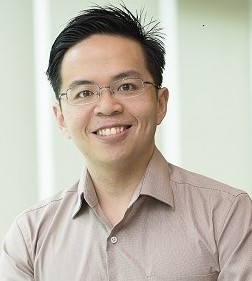LLMs for Engineering and Architecting Software: What Works, What’s Missing, and What’s Next? |
|

|
Abstract: Large Language Models (LLMs) have made significant progress in software engineering, assisting with tasks like code generation, software documentation, and automated debugging. However, their role in software architecture remains underexplored, where reasoning about high-level design, trade-offs, and long-term system evolution presents unique challenges. In this talk, I will first review the progress of LLMs in software engineering, highlighting their successes and open research questions. I will then present key challenges faced by software architects, derived from an interview study and literature review, and summarize them using a four-quadrant framework that categorizes the main pain points. Within this framework, I will discuss how LLMs have already contributed—including their use in generating domain models, assisting with architectural design decisions, and improving architecture traceability—while also identifying areas where further advancements are needed to maximize their impact. Finally, I will explore future research directions in LLMs for Software Architecture (LLM4SA), connecting them to the broader vision of LLMs for Software Engineering (LLM4SE). By identifying what works, what’s missing, and what’s next, this talk aims to provide a structured roadmap for integrating LLMs more effectively into software architecture and engineering. David LoOUB Chair Professor of Computer Science, Director of the Center for Research in Intelligent Software Engineering (RISE), Singapore Management University.David Lo is the OUB Chair Professor of Computer Science and Director of the Center for Research in Intelligent Software Engineering (RISE) at Singapore Management University. Championing the area of AI for Software Engineering (AI4SE) since the mid-2000s, he has demonstrated how AI — encompassing data mining, machine learning, information retrieval, natural language processing, and search-based algorithms — can transform software engineering data into actionable insights and automation. Through empirical studies, he has also identified practitioners' pain points, characterized the limitations of AI4SE solutions, and explored practitioners' acceptance thresholds for AI-powered tools. His contributions have led to over 20 awards, including two Test-of-Time awards and eleven ACM SIGSOFT/IEEE TCSE Distinguished Paper awards, and his work has garnered over 38,000 citations. An ACM Fellow, IEEE Fellow, ASE Fellow, and National Research Foundation Investigator (Senior Fellow), Lo has also served as a PC Co-Chair for ASE'20, FSE'24, and ICSE'25. |
From Building Systems to Growing Systems |
|

|
Abstract: Digitalization is one of the most powerful and profound developments that affect industry and society. With digital technologies such as software, data, and artificial intelligence (AI), companies in the software-intensive systems domain are facing a rapid transformation of their businesses and a fundamental shift in how systems are built. The essence of digitalization is continuous value delivery to customers and systems that improve and learn over time. Today we build systems – tomorrow we will grow systems. This is accomplished by continuous practices (e.g., DevOps, DataOps, MLOps), data-driven and experimental development, and effective use of AI technologies such as machine- and deep-learning (ML/DL) models. This talk takes a holistic perspective when exploring how software engineering practices are in the process of changing and what the implications of these changes are. Based on longitudinal empirical research conducted in close collaboration with software-intensive systems companies in e.g., the telecommunications, automotive, manufacturing, security and surveillance industry, as well as companies in the Software-as-a-Service (SaaS domain), it provides illustrative examples on how software engineering practices are in the process changing and how these changes affect business, architecture, process and organization. Helena Holmström OlssonProfessor in Computer Science at the Department of Computer Science and Media Technology at Malmö University, Sweden.Helena Holmström Olsson is a Professor in Computer Science at the Department of Computer Science and Media Technology at Malmö University, Sweden. She is a senior researcher and theme leader in Software Center (https://www.software-center.se) and in the ‘Continuous Digitalization’ (CoDig) Competence Center, where the focus is to enable transformation of the software-intensive systems industry into a digitized industry that can fully benefit from next-generation computing and communications infrastructures. She received her Ph.D. in Informatics from the University of Gothenburg in 2004 and did her postdoc in LERO (The Irish Software Research Center) at the University of Limerick, Ireland. Her research interests and expertise include the engineering aspects of AI systems, data-driven development practices, digitalization and digital transformation, and software and business ecosystems. She is the supervisor of several PhD students in the area of data-driven development and AI engineering, focusing in particular on the business and organizational implications of AI deployment, and she has a well-established collaboration with the European software-intensive embedded systems industry. Her research is published in high-quality software engineering journals and she is a board member of the International Software Product Management Association (ISPMA). |
Architecting for Growth: Balancing Organization, Processes, and Technology Modernization |
|
 |
Abstract: This talk builds on the lessons learned at a large Scandinavian e-commerce business about how an emergent approach to architecture, hand-in-hand with the introduction of disciplined agile ways of working, can be instrumental in supporting a development organization going through rapid growth while facing increasing business demands. In the span of a few years, we managed to
Christian HorsdalIndependent ConsultantChristian is an independent consultant working with clients as an architect, consultant, and developer. Through my work with clients, he has gained extensive experience in architecting and implementing real solutions to real problems, based on the business, the functional requirements, and the non-functional requirements. He is an expert .NET architect and developer who mixes and matches commercial, open source, and tailor-made components in a quest to create simple and lean solutions that allow for quick and agile development. |